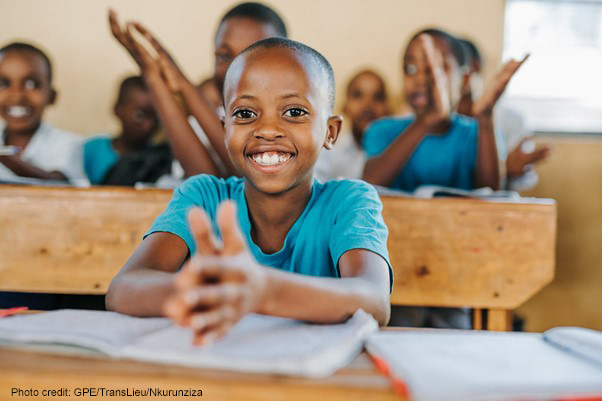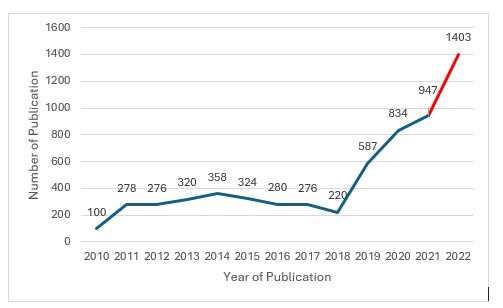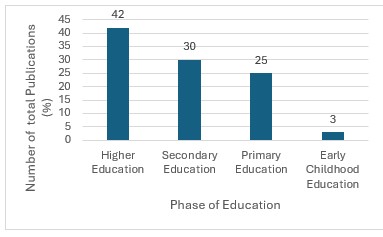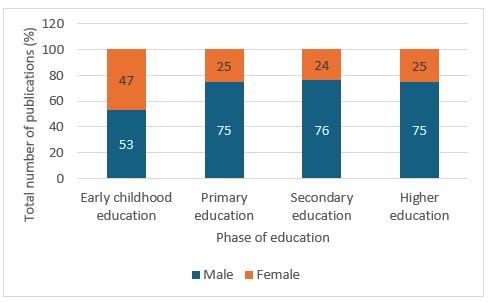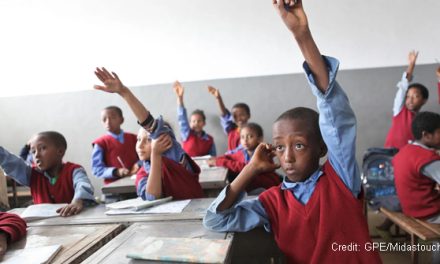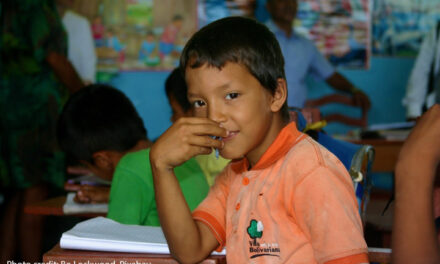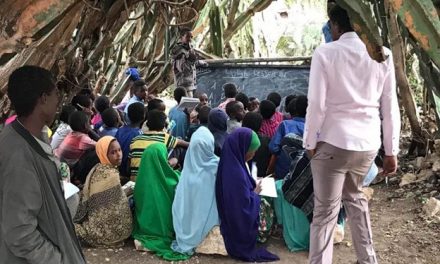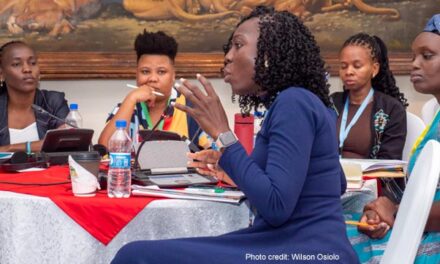This blog was written by Samuel Asare, Senior Research Manager, Education Sub Saharan Africa (ESSA), and Priscilla Bretuo, Ronald Omuthe, and Basirat Razaq-Shuaib, Doctoral Students at the REAL Centre, Faculty of Education, University of Cambridge.
The African Education Research Database has been updated with the latest 1,403 publications published between 2021 and 2022. This is as part of the commitment of the Research for Equitable Access and Learning (REAL) Centre at the University of Cambridge and Education Sub Saharan Africa (ESSA) to increase the visibility and use of education research published by scholars in sub-Saharan Africa. This brings the total number of publications in the database to over 6,000 peer-reviewed publications from 48 countries in sub-Saharan Africa. These publications have all been published in internationally recognised journals.
This blog builds on a previous analysis highlighting limited research addressing early years in sub-Saharan Africa, and continues to draw attention to the need to prioritise early learning for equitable learning outcomes.
What we learned
A continued increase in publications since 2021
The steep increase in publications since 2018 (when the African Education Research Database was launched) has continued with the latest additions of publications between 2021 and 2022. The total number of articles increased by 50% from 947 to 1,403 between 2021 and 2022 (Figure 1). The database includes all countries in sub-Saharan Africa, other than South Africa, given that the country’s publications outweigh other countries, and have less difficulty with visibility.
Fewer countries dominate education research in sub-Saharan Africa
The majority of publications in the database are from English speaking sub-Saharan African countries, with the top five countries representing 64% of the overall publications: Nigeria (1,613), Ghana (873), Ethiopia (643), Kenya (477), and Tanzania (364). This pattern of countries is consistent for the pattern in 2018 to 2019 (when the increase in outputs began) and the most current additions (2021 to 2022). This could be due to a comparatively better research environment in those countries, and partly the underrepresentation of French publications in Scopus and Web of Science (main databases from which the African Education Research Database draws data). However, Mauritius, a small island country, has 90 publications, which places it in the top 12 countries.
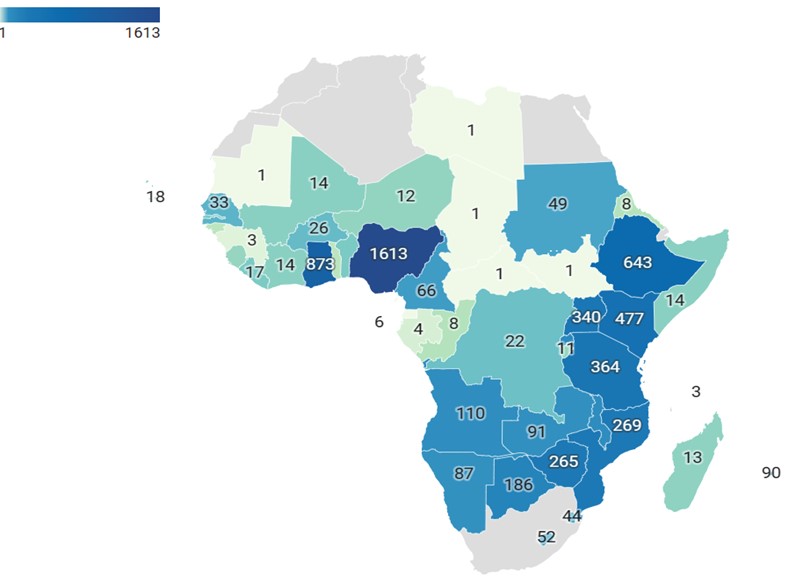
Figure 2. Research outputs in the African Education Research Database across countries (2010 to 2022)
Early childhood education receives comparatively little focus
While higher education has the largest share of publications (42%), early childhood education (ECE) has an extremely small share. At only 3% of the total publications, there is limited evidence available from sub-Saharan African researchers to inform decision-making to transform young children’s experience.
While we see an increase in publications for all levels of education across all the years in the database (2010 to 2022), the relative neglect of ECE remains consistent across all years. Most of the increase in publications in the most recent year was for publications on higher education. There are almost as many publications on higher education in 2021 to 2022 as there are for all other levels of education combined. The number of publications on the early years (ECE and primary education together) is similar to those on secondary education for this period. The relative limited attention to the early years is striking given the current global and regional policy attention placed on the importance of foundational learning, including as part of the African Union’s year of education.
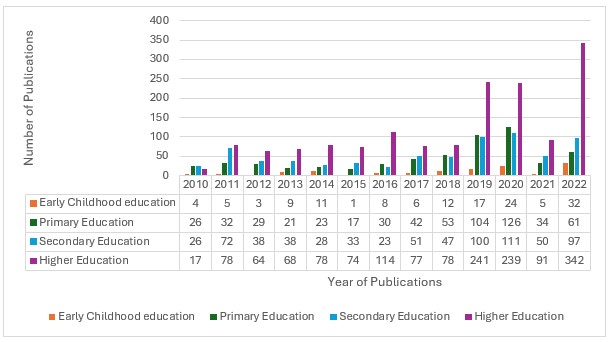
Figure 4. Publications in the African Education Research Database on phase of education across years (2010 to 2022)
A higher proportion of ECE publications include female authors compared to other levels of education
On average, only around one in four publications in the database include female authors. However, a different pattern is apparent for ECE publications, for which there is a near equal number of female and male authors. However, this is in a context of a much lower number of publications overall.
Who funds education research by African-based scholars
The main funders of publications in the database are foundations and governmental institutions based outside Africa. However, there are two institutions from Africa among the top 10: African Centre of Excellence for Innovative Teaching and Learning Mathematics and Sciences (ACELTLMS) at the second position, and a University in Ethiopia.
|
Top 10 education research funders (2010 to 2022), in descending order |
|
1. Foreign, Commonwealth & Development Office (FCDO), UK |
|
2. African Centre of Excellence for Innovative Teaching and Learning Mathematics and Sciences (ACELTLMS) |
|
3. United States Agency for International Development (USAID) |
|
4. Hewlett Foundation |
|
5. Economic and Social Research Council (ESRC), UK |
|
6. Bill & Melinda Gates Foundation |
|
7. Carnegie Cooperation of New York |
|
8. Commonwealth Scholarship Commission, UK |
|
9. Arba Minch University, Ethiopia |
|
10. United Nations Children’s Fund (UNICEF) |
This blog shows continued increase in education research publications by scholar based in sub-Saharan Africa. This is an indication that with required support, African-based researchers can further increase evidence generation to improve learning outcomes for children in the region. However, there is increasing concern that only a small portion of education research addresses the early years of education where children get opportunities to develop better foundation for the future. The African Education Research Database is an important resource for identifying evidence to inform investment in early years to ensure equitable learning outcomes for all.
——————
This is the fifth in a series of blogs related to increasing the visibility of African research through the collaboration between Education Sub Saharan Africa and the REAL Centre, to increase the visibility and use of research produced by Africans based in Africa, with a focus on early childhood development and foundational learning. See also the African Education Research Database.
The other blogs in the series are:

